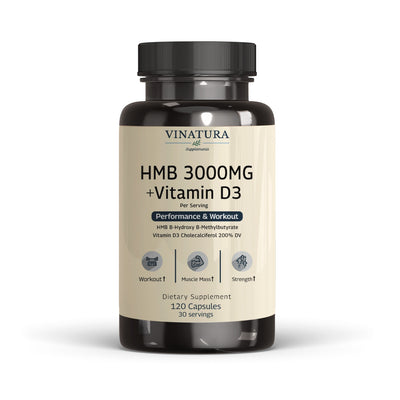
Does Tongkat Ali Cause Hair Loss? Does It Increase DHT Levels?
Tongkat Ali is one of the most popular supplements that many men use to improve their health, physical appearance, and testosterone levels.
However, some people have raised concerns about the potential side effects of taking Tongkat Ali, with one issue being hair loss.
In this blog post, we will examine the evidence surrounding this issue, answer the question "Does Tongkat Ali cause hair loss?" and discuss other common causes of hair loss that you should be aware of.
Before exploring further, please read the disclaimer located at the end of this webpage.
Does Tongkat Ali Cause Hair Loss?

Tongkat Ali does not directly cause hair loss. No scientific evidence supports the claim that Tongkat Ali leads to hair loss or affects baldness. There have been no reported cases of hair loss associated with Tongkat Ali.
However, men with baldness need to be aware.
While no scientific research or concrete reports is linking Tongkat Ali to hair loss or baldness, some studies suggest that in men who are genetically predisposed to baldness, an increase in testosterone levels after puberty may result in irreversible regression of scalp hair follicles [1] [2].
Therefore, the stimulation of testosterone production by Tongkat Ali may indirectly contribute to the regression of scalp hair follicles in men with baldness.
However, it is crucial to note that this is merely a subjective causal inference, and more scientific evidence is necessary to convincingly support this claim.
Also, keep in mind that this supplement also comes with some potential side effects—most notably, an increase in testosterone production.
This could affect those sensitive to the hormone, leading to an imbalance in their body that could result in reduced hair growth.
Therefore, if you're taking Tongkat Ali for hair loss or other reasons, pay attention to how it affects your body and take proper precautions.
Does Tongkat Ali Increase DHT Levels?
Tongkat Ali may increase DHT levels but has little to no effect on hair loss and may even support hormonal balance, especially in improving testosterone levels.
Dihydrotestosterone (DHT) is a hormone derived from testosterone, and it plays a significant role in male biological characteristics, including hair growth. Elevated levels of DHT can bind to scalp hair follicles, causing them to shrink and thus resulting in hair thinning and loss. Therefore, the relationship between Tongkat Ali and DHT is a crucial consideration in hair health.
A study [3] suggests that Tongkat Ali may increase testosterone and DHT in male mice, improving sperm concentration, motility, and fertility.
However, many studies have found a significantly higher baseline DHT concentration in bald individuals' scalps than those with normal scalps [4]. This has led some to believe that Tongkat Ali's elevation of DHT levels may contribute to baldness.
But in reality, this is not the case.
The mechanism leading to baldness is related to DHT only when there is an imbalance between DHT and testosterone, with DHT levels significantly higher than testosterone levels.
This imbalance typically occurs in middle age due to a decline in testosterone production, leading to an elevated DHT concentration and hair loss.
On the other hand, Tongkat Ali has been shown to improve testosterone levels and support hormonal balance, including DHT.
Although there is no scientific evidence regarding Tongkat Ali's support for hair growth, it does indicate a potential connection that warrants further research.
Read more: Tongkat Ali Side Effects Liver - Cautions And Notable Dosage
Does Tongkat Ali Help with Hair Growth?
It can be difficult to determine if Tongkat Ali will help improve your hair quality since there is limited research on the matter.
However, it's important to note that even if Tongkat Ali does not directly encourage hair growth, there may be certain other benefits associated with taking this supplement—including boosted energy levels, increased libido, and improved muscle mass.
It is important not to conflate this with our previous mention. The reality is that individuals with a predisposition to baldness should closely monitor their hair condition when using Tongkat Ali.
On the other hand, there is little evidence or reported cases suggesting any significant impact on hair growth for regular individuals who use Tongkat Ali.
Is Tongkat Ali Safe for Men Who Are Losing Hair?

As we mentioned before, men who are losing hair or baldness need to pay more attention when taking Tongkat Ali.
While there is no concrete evidence of a direct link between the supplement and hair loss, it's important to monitor your testosterone levels and other hormonal changes that may be related to baldness if you're taking Tongkat Ali.
However, it is important to be mindful of potential side effects. Some common Tongkat Ali side effects include insomnia, headache, anxiety, increased heart rate, acne, and confusion.
Also read: Does Tongkat Ali Affect Blood Pressure? What Does Science Say?
What Else Causes Hair Loss?
A variety of factors can cause hair loss. Other potential causes include aging, stress, heredity, certain medications (e.g., chemotherapy drugs), and nutrient deficiencies.
It's important to note that baldness or thinning hair may also be signs of underlying medical conditions such as anemia, thyroid disease, or an autoimmune disorder.
Therefore, if you experience hair loss or thinning hair, it is best to seek professional medical advice to rule out any other underlying causes.
Also, taking the proper nutrition and supplements (including Tongkat Ali) may help support healthy hair growth.
A balanced diet that includes essential vitamins and minerals (e.g., vitamin B, zinc) is key to promoting hair health.
Limiting exposure to environmental stressors such as air pollution and UV light may also help keep the scalp and hair follicles healthy.
Finally, some natural remedies can help promote hair growth, including the use of essential oils (e.g., peppermint oil), massaging the scalp with stimulating ingredients (e.g., ginger or rosemary), and using products specially formulated for hair regrowth (e.g., Minoxidil).
Frequently Asked Questions
Can Tongkat Ali Be Used For A Long Time Without Problems?
Tongkat Ali is generally safe for long-term use, but it's recommended to follow the dosage guidelines provided by the manufacturer. While side effects are rare, they can occur, especially if taken in excessive amounts. Always consult your healthcare provider for personalized advice.
Are There Any Bad Effects of Tongkat Ali?
Tongkat Ali is generally considered safe, but it can have potential side effects like any supplement. These may include insomnia, increased heart rate, headaches, and mood swings.
Conclusion
While there is no scientific evidence that it directly encourages hair growth, some studies suggest that it may help balance out testosterone and dihydrotestosterone levels, potentially leading to better hair health. When considering Tongkat Ali supplementation for hair health, individuals with a predisposition to baldness should closely monitor their hair condition.
References
- [1] Obana, N., Chang, C., & Uno, H. (1997). Inhibition of Hair Growth by Testosterone in the Presence of Dermal Papilla Cells from the Frontal Bald Scalp of the Postpubertal Stumptailed Macaque1. Endocrinology, 138(1), 356–361. https://doi.org/10.1210/endo.138.1.4890
- [2] Chen, X., Liu, B., Li, Y., Han, L., Tang, X., Deng, W., Lai, W., & Wan, M. (2020). Dihydrotestosterone Regulates Hair Growth Through the Wnt/β-Catenin Pathway in C57BL/6 Mice and In Vitro Organ Culture. Frontiers in Pharmacology, 10. https://doi.org/10.3389/fphar.2019.01528
- [3] Chempaka, S., Yusof, M., Hussein, S., Moosa, S., Majid, A., Mohammad, A., Ali, F., Khamis, S., & Ibrahim, R. (n.d.). Incorporation Of Tongkat Ali And Ginseng Extracts From Mass Propagated Roots Derived From Bioreactor Technology As Supplements In Energy Chocolate Confectionery. Retrieved November 29, 2023, from https://inis.iaea.org/collection/NCLCollectionStore/_Public/44/096/44096868.pdf?r=1
- [4] A. Dallob, Sadick, N. S., Unger, W., Lipert, S., Geissler, L., Grégoire, S., Nguyen, H. H., E. Colleen Moore, & Tanaka, W. (1994). The effect of finasteride, a 5 alpha-reductase inhibitor, on scalp skin testosterone and dihydrotestosterone concentrations in patients with male pattern baldness. The Journal of Clinical Endocrinology & Metabolism, 79(3), 703–706. https://doi.org/10.1210/jcem.79.3.8077349
Author

Product Disclaimer
The dietary supplement products mentioned on this website are formulated based on scientific research and adhere to FDA guidelines for dietary supplements. However, the content of the articles has not been evaluated by the Food and Drug Administration (FDA) and is not intended to promote or endorse any specific product. Any products sold on this website are not intended to diagnose, treat, cure, or prevent any disease.
Opinions and Endorsements
Any claims, statements, or opinions expressed in the articles are those of the author(s) and do not necessarily reflect the views or opinions of the manufacturers of the dietary supplement products. The products sold on this website are separate from the content of the articles and are not directly endorsed or associated with the information presented here.
Liability Disclaimer
The author(s) of the articles, website, and manufacturers of the dietary supplement products do not assume any liability for any potential consequences arising from the use of the information provided in the articles. It is recommended that individuals consult with a qualified healthcare professional before making any dietary or lifestyle changes, including the use of dietary supplements.
Product Usage
Please refer to the product labels and packaging for specific usage instructions and guidelines for the dietary supplement products sold on this website.
Customer Support
For any concerns or questions regarding the dietary supplement products, please contact our customer support team, who will be more than happy to assist you.






Leave a Comment
Be the first to comment.
What do you think?